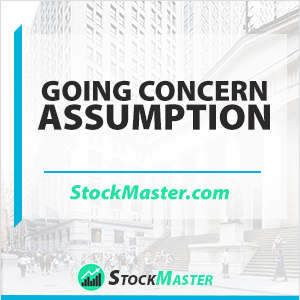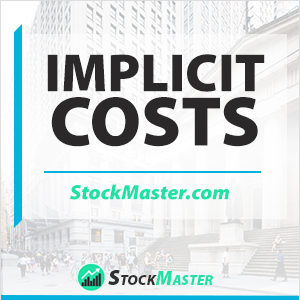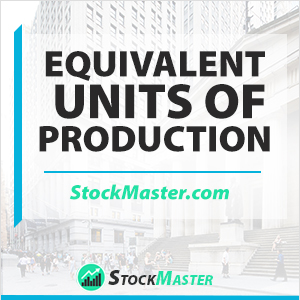What is the Going Concern Assumption? Definition: The going concern assumption is an accounting principle that states a business should be viewed as if it will continue to operate into the future. When a business opens its doors to the public, the common assumption is that it will remain open for the longest time possible,
Category: Accounting
Implicit Cost
What is an Implicit Cost? Definition: An implicit cost refers to any opportunity cost that a firm incurs when its internal resources are used for a project but only when the project does not offer compensation for the committed resources. It is considered an opportunity cost because the company puts its resources into a non-paying
Income Summary
What is the Income Summary Account? Definition: Income summary is a special type of financial account whereby balances of revenue and expenses for a given accounting period are transferred. Being a summary account, it is designed to receive all temporary accounts made up of revenues and expenses at the end of each accounting period. In
General Journal
What is the General Journal? Definition: The general journal is the accounting book that businesses use to record all of their daily financial transactions with debits and credits. Businesses must record their transactional operations daily. The transactions may include opening stock, purchases, cash receipts, and payments, and other non – financial transactions. All these are
Full Disclosure Principle
What is the Full Disclosure Principle? Definition: The full discloser principle is an accounting assumption that a company’s financial statement disclose and reveal any important information to financial statement users that would affect their decision making process. This term is ubiquitous in the accounting world. More often than not, the full disclosure principle is applied
Fixed Cost
What is a Fixed Cost? Definition: A fixed cost is one of the main expenses that firms, engaged in the production of goods and services, incur. Unlike other costs, fixed costs remain constant and do not change even with a change in production volume. As the cost remains constant, they must be paid independent of
Financing Activities
What Are Financing Activities? Definition: Financing activities are operations through which a business or company raises capital to finance operations. Simply put, they are transactions that affect long-term liabilities as well as equity of firms. The transactions involve creditors or investors that invest requested amount of money Above all, financing activities show how businesses raise
Expenditure
What is an Expenditure? Definition: In business, expenditure refers to funds that businesses or individuals use to acquire new assets, to reduce or do away with liabilities, or to improve the existing assets. So, if a business pays cash or uses credit to replenish its stock then the business will record the transaction as expenditure.
Estate Tax
What is the Estate Tax? Definition: An estate tax is the financial levy that is applied during the transfer of an estate from the previous owner upon death. Usually, estate owners leave a will behind that defines the process of transfer, with details like who will receive a piece of the estate and what amount.
Equivalent Units of Production
What are Equivalent Units of Production? Definition: Equivalent units of production are the sum of the units completed during a given accounting period together with the unfinished units that have been expressed as finished units. Simply stated, equivalent units of production are the units in production represented as a factor of the completeness of the










